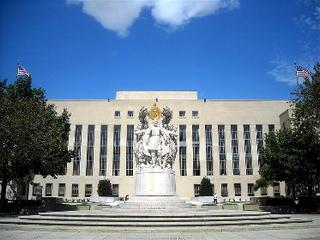Court Upholds Program Access Rules

WASHINGTON: A federal appeals court today determined that cable TV operators must continue sharing channels they own with other providers. The U.S. Court of Appeals for the D.C. Circuit voted 2-1 to uphold the Federal Communications Commissions program-access rules. The FCC renewed the rules for five years in 2007. Cablevision took the FCC to court last year over the statute.
The cable operator charged that the FCC misinterpreted the spirit of program access, that the extension was arbitrary and capricious and that it violated the First Amendment.
“We hold that the commission’s interpretation of its statutory mandate was reasonable,” Chief Judge David Sentelle wrote in the majority opinion.
Program-access rules require cable operators to make programming they own available to competing carriers. The topic is an especially hot potato now that Comcast is negotiating federal hurdles to acquire a majority share of NBCU. The merger will make Comcast the first pay TV provider to have control of a broadcast network, in addition to the stable of cable networks it will add to those it now owns. Lawmakers have grilled Comcast and NBCU executives on Capitol Hill about continued access to those networks by competing providers. It’s of particular concern to smaller operators, like those represented by the American Cable Association.
The court inferred that program-access rules would one day be obsolete. It noted that in 2007, there were 531 national networks, up from 294 in 2002 and 68 in 1991. “The percentage of those networks that were vertically integrated decreased to 22 percent from 35 percent in 2002, and 57 percent in 1992.”
Pay TV distribution is likewise changing. Cable operators now have a 67 percent market share, down from 78 percent in 2002 and 95 percent in 1992. Direct broadcast satellite now has 30 percent versus 18 percent in 2002. TelcoTV too, is finally making inroads.
The ACA nonetheless said program-access rules were not only necessary, but the current ones inadequately protect small competitors.
“We maintain that the current program-access rules are demonstrably ineffective for competitive pay-TV content buyers because they permit rampant, unjustified price discrimination,” the ACA said in a statement. “Moreover, the rules fail to provide for an automatic right to continued carriage during the pendency of a complaint, and do not offer any rate-setting mechanisms.”
Congress first prohibited exclusive contracts for TV channels in 1992. Lawmakers were concerned that cable operators would withhold popular channels from competitors and create monopolies. The statue required the FCC to review the rules every 10 years. The FCC issued a five-year extension in 2002 and again in 2007 when four cable operators owned six of the top 20 national cable networks and half of the regional sports channels.
FCC Chairman Julius Genachowski issued the following statement regarding the court’s decision: “I’m pleased that the D.C. Circuit court has confirmed the commission’s authority to prevent vertically integrated cable companies from denying critical television programming to their competitors and consumers.”
Judge Thomas Griffith concurred with Sentelle on the decision; Judge Brett Kavanaugh dissented on First Amendment grounds.
“The Supreme Court has repeatedly ruled that video programming distributors--such as Comcast, DIRECTV, DISH, Time Warner, Cablevision, Verizon, and AT&T--and video programming networks--TNT, ESPN, Fox News, MSNBC, and several hundred others--are editors and speakers protected by the First Amendment’s guarantees of freedom of speech and of the press.”
SCOTUS precedent provides for content-neutral regulations only if it promotes an “important” or “substantial” government interest, and only to the extent that it does so.
Kavanaugh said the FCC program-access rules fail because they serve no government interest and apply only to cable operators with “attributable interest in a programming network.”
He said it was understandable that the FCC wanted to ensure that consumers access to the programming they wanted. But that “governmental desire that every programming distributor carry the same networks can no more justify interference with Cablevision’s First Amendment rights than it could justify the government telling Barnes & Noble what publisher’s books it had to sell.”
“I readily concede that the First Amendment rights of a Cablevision or ESPN do not tug at the free speech heartstrings in the same way as the iconic political protester who lies at the core of the First Amendment. But if video programming distributors are like bookstores and movie theaters and newsstands--and the Supreme Court has repeatedly and emphatically said they are--we cannot brush aside the vital First Amendment interests at stake here. Cablevision asked that TVB include the following statement in response to media inquiries regarding the court decision.
“Like the must carry and retransmission consent regime that allowed ABC to blackout the Oscars for 3 million New York households this week, the program access rules are based on an outdated and obsolete view of the competitive landscape. In today’s highly competitive video marketplace these rules do nothing but tilt the playing field in favor of phone companies and broadcasters to the detriment of fair competition and consumers.” Deborah D. McAdams
(Image by AgnosticPreachersKid)
Get the TV Tech Newsletter
The professional video industry's #1 source for news, trends and product and tech information. Sign up below.
